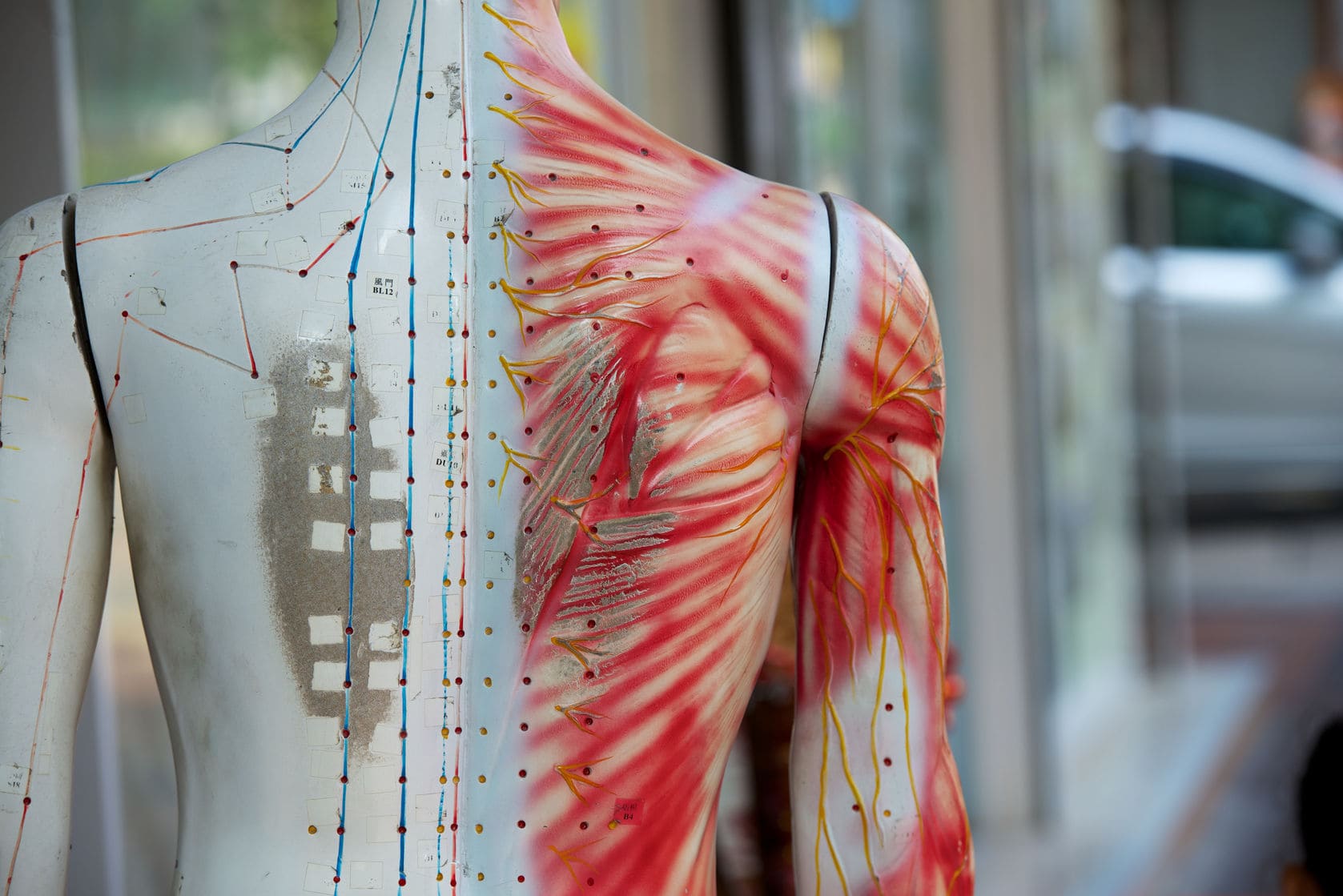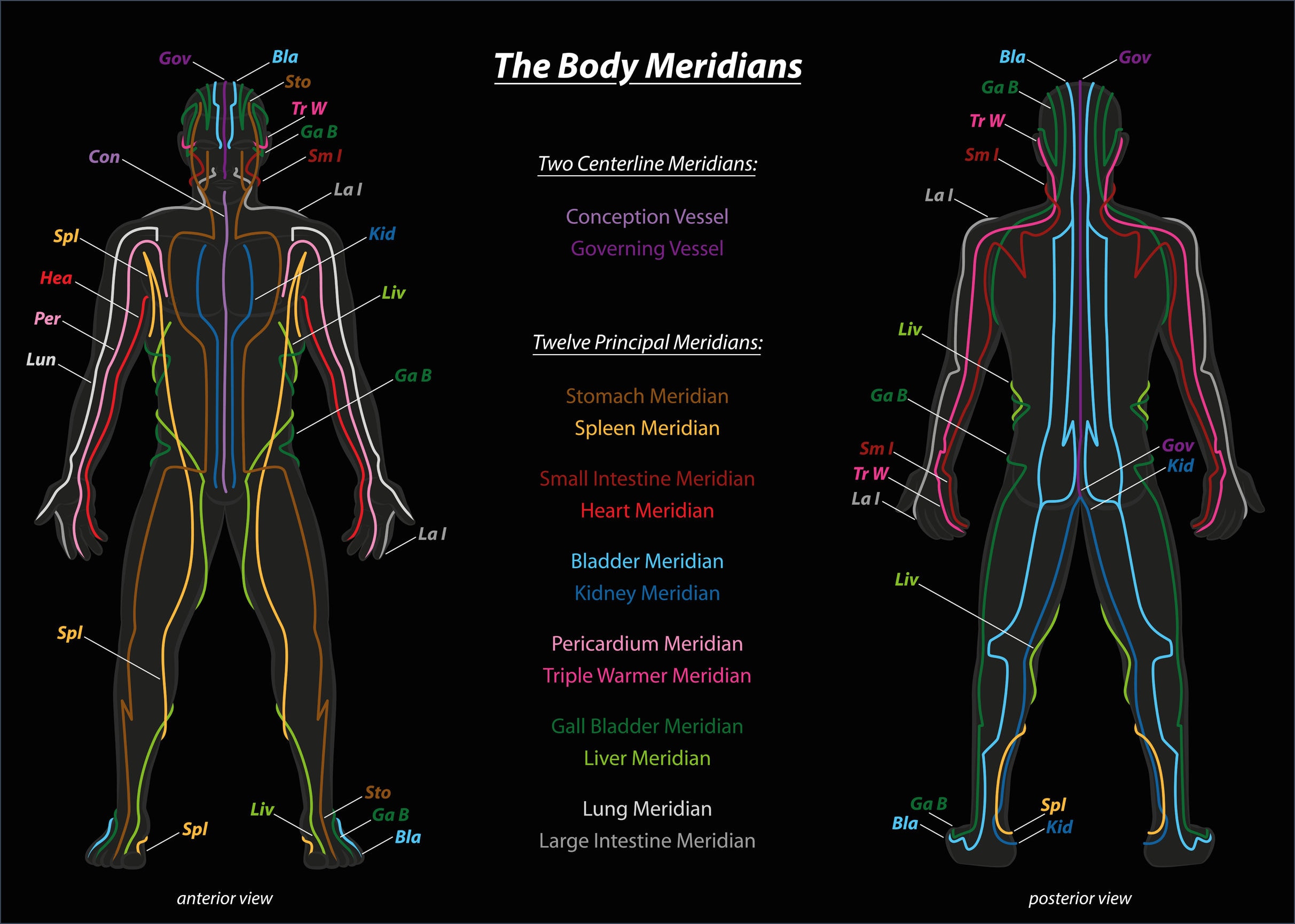Dr. Allison Heffron, DC, L.Ac. explains the ancient practice of Acupuncture and how our bodies meridians, or channels, are used as guides in the exact placement of the needles to treat each specific condition.

Today, the appeal of acupuncture has grown even within the eyes of the skeptics. Although the interest in the therapy has increased, there has been no change in the medicine itself. So, what is it? How can inserting needles in, what seems to be random spots on the body have any profound effect on your health?
The Fundamentals of Acupuncture
First, it is important to understand the very fundamentals of acupuncture. Why are the needles placed where they are placed? Well, some of you may have heard of the term “channels” or “meridians.” You may think that that’s just a bunch of hoo-haa and snake oil talk. It isn’t: fact. These channels are not just magical lines that someone thought would be cool to make up and draw. They are actually based on human dissection performed in ancient China. The meridians/channels are really just nerves, blood vessels, and fascial lines1 throughout the body. Knowing this information is key in understanding this ancient practice, and why it is still used to treat a wide variety of ailments.

Why Needles?
Why are needles involved? What is their purpose? In order to make sense of this, let’s discuss inflammation. Inflammation is typically thought of as a bad thing, but it is an important process of healing. Inflammation only becomes a problem when it is widespread and above normal limits. In this case, we are discussing the microscopic level of inflammation. When your body detects something that is out of the ordinary, whether it be a germ, or an object (i.e. needle) the body will signal fresh red blood cells to attack it. This war zone is your body trying to heal. Here is an example: I sprain my ankle and inflammation occurs to help heal the damaged tissue. If I wait long enough for it to become chronic then the tissue will become stagnant over time and less fresh blood will enter the area. My body has basically accepted this tissue as being normal now. One day I decide to get acupuncture for it because it still causes me pain and has changed the way I walk to the point of now having knee, hip, or low back pain. The needles will signal new blood to enter the area to invigorate that tissue again and therefore decreases the pain. Another scenario would be that I get it needled right away and just further catalyze the healing process so that the risk of it becoming chronic is far less. In short, using the needles is just a way to open up communication throughout the body!
Is Acupuncture Used to Treat Conditions Unrelated to Pain?
What about for insomnia or irritable bowel syndrome? That’s not local inflammation, like a sprain. This is true, it isn’t local inflammation! For these types of cases acupuncture is still extremely helpful because, as previously mentioned, the channels are made of nerve and blood pathways. This means that anything affected by the nervous system or circulatory system can be affected by acupuncture. What is affected by the nervous system or circulatory system? Literally the entire body and all of its systems. Here is a list of the 12 main channels: Lung, Large Intestine, Stomach, Spleen, Heart, Small Intestine, Bladder, Kidney, Pericardium, Triple Burner, Gallbladder, and Liver. Needling specific points within specific channels will open up communication along that channel as well as other regions that are associated with it.
Acupuncture is used to treat a wide variety of ailments as the channels cover every layer of human anatomy as well as its physiology. The needles are the tool in which acupuncturists can open up the communication and circulation within the body and that promotes balance and harmony. The magic and woo-woo perspective of this therapy only exists because the science of its birth is not as widely discussed as pharmaceuticals. Acupuncture is a conservative method of treatment that can be used on its own or in addition to a Western approach.
Typical Conditions Treated through Acupuncture:
- Muscle and Joint Pain
- Headaches
- Dizziness
- GI Disorders
- Poor Circulation
- Detoxification Therapy
- Smoking Cessation
- Common cold and flu
- Asthma and Allergies
- Infertility
- Insomnia
- Stress
- Inflammation
1 fascial lines:
- fascia: a thin sheath of fibrous tissue enclosing a muscle or other organ. Think of the thin film that covers raw chicken breast.
- fascial lines: pathways of connecting fascia
Dr. Allison Heffron, DC, L.Ac.